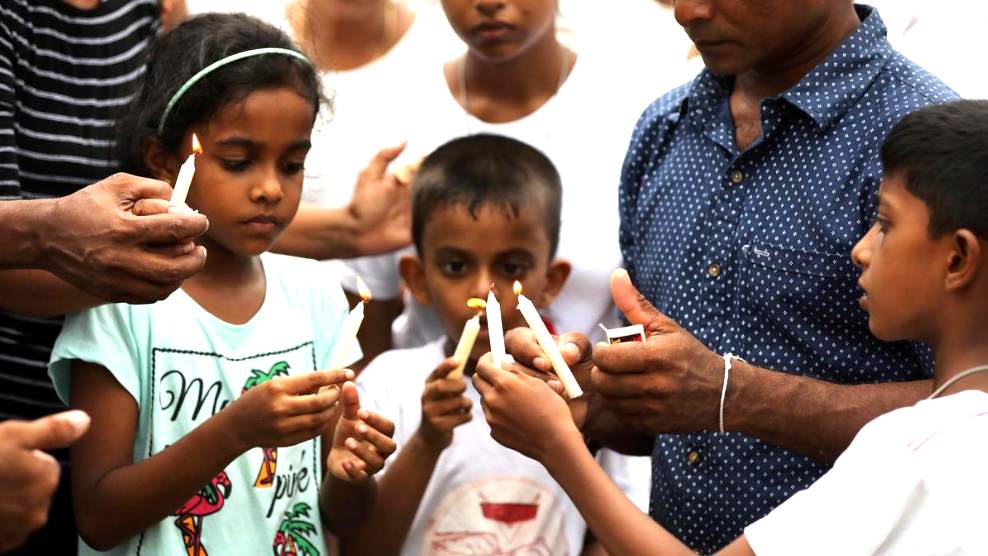Authorities in Sri Lanka on Thursday lowered the death toll in a spate of Easter bombings. The new official figure was 253, down from an earlier 359, Deputy Defence Minister Ruwan Wijewardene said. He blamed inaccurate data provided by morgues for the discrepancy.
Anil Jasinghe, the director general of Sri Lanka's health ministry said: "Many of the victims were badly mutilated. There was double counting," and any figure was an estimate: "It could be 250 or 260. I can't exactly say. There are so many body parts and it is difficult to give a precise figure."
The suicide bomb attacks on three churches and four hotels have exposed an intelligence failure, with accusations that warnings had not been acted on and feuds at the top levels of government had undermined security cooperation.
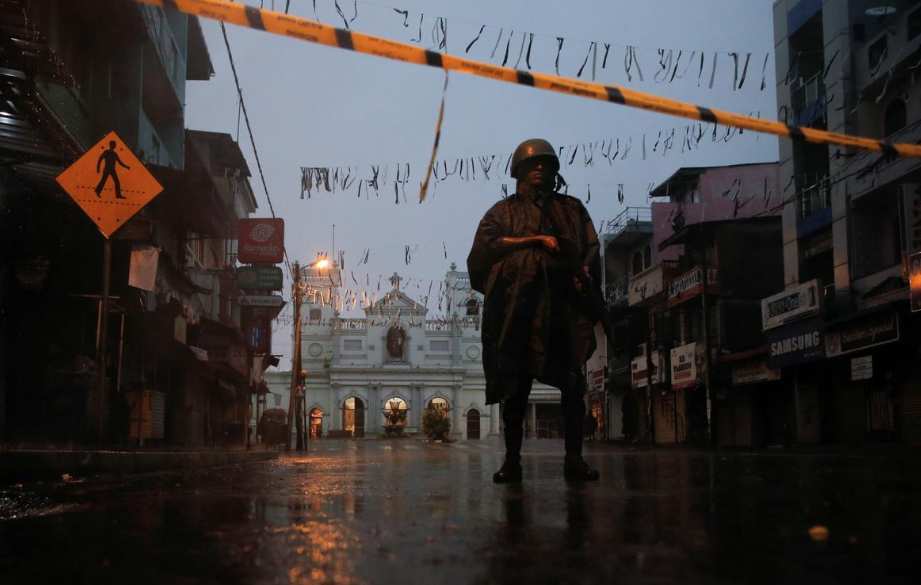
A soldier stands guard at St. Anthony's Shrine during heavy rain, days after a string of suicide bomb attacks on churches and luxury hotels across the island on Easter Sunday, in Colombo, Sri Lanka, April 25, 2019. /Reuters Photo
A soldier stands guard at St. Anthony's Shrine during heavy rain, days after a string of suicide bomb attacks on churches and luxury hotels across the island on Easter Sunday, in Colombo, Sri Lanka, April 25, 2019. /Reuters Photo
Bickers among bureaucrats
Sri Lanka's police chief warned on April 11 of possible suicide bombings against churches by local Islamist group National Thowheeth Jama'ath (NTJ), citing information from a foreign intelligence agency.
Indian intelligence shared several specific warnings about plans for attacks with Sri Lankan authorities, based on information from suspects arrested in India over links to the ISIL group, an Indian source close to the Indian investigation said, but the information was not given to ministers, in what Colombo has called a "major" lapse.
Both President Maithripala Sirisena and his rival, Prime Minister Ranil Wickremesinghe, denied seeing the Indian intelligence warnings, officials have said.
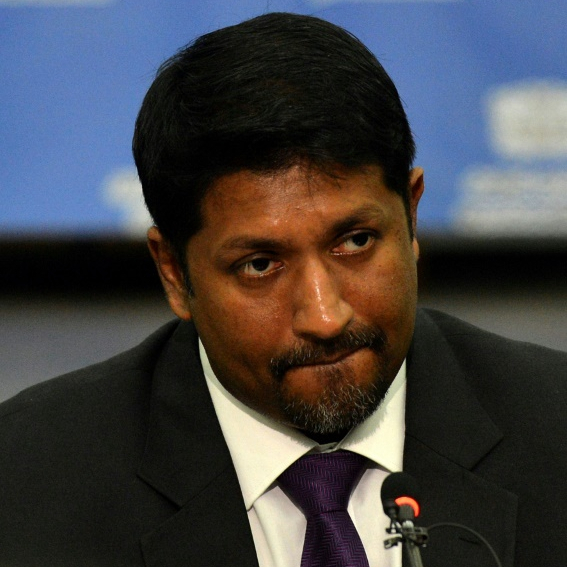
Sri Lanka's deputy defense minister Ruwan Wijewardene has acknowledged "a major lapse in the sharing of information." /AFP Photo
Sri Lanka's deputy defense minister Ruwan Wijewardene has acknowledged "a major lapse in the sharing of information." /AFP Photo
"It was a major lapse in the sharing of information," Deputy Defense Minister Ruwan Wijewardene said Wednesday.
The failure to process the intelligence and prevent the successive bomb attacks forced a top bureaucrat of this island nation to resign. Hemasiri Fernando, the defense ministry of Sri Lanka, was the first official to step down and additional resignations were expected.
However, it seems unlikely that Fernando's resignation will end the questions and recriminations over why authorities failed to act more effectively to stop the plotters.
The president fired Wickremesinghe last October over political differences, only to reinstate him weeks later under pressure from the Supreme Court.
Hunting for attackers
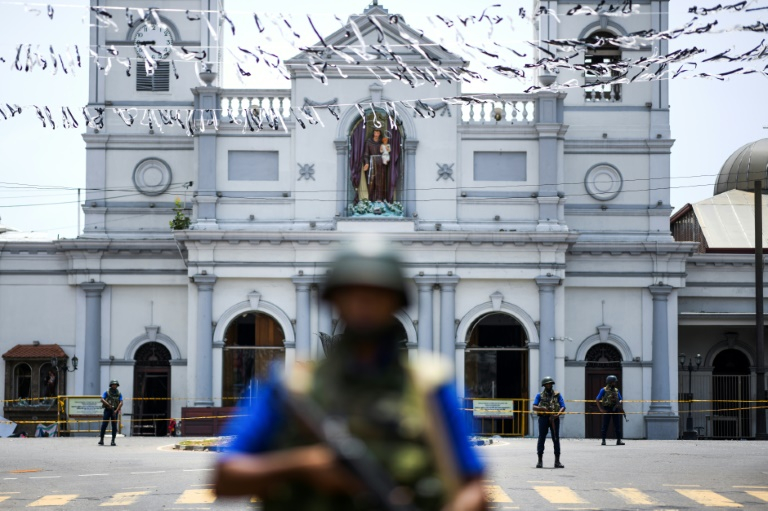
Sri Lanka has deployed thousands of troops, including here outside St. Anthony's Shrine in Colombo, one of the blast sites, as it hunts for suspects in the Easter attacks. /AFP Photo
Sri Lanka has deployed thousands of troops, including here outside St. Anthony's Shrine in Colombo, one of the blast sites, as it hunts for suspects in the Easter attacks. /AFP Photo
Authorities are now in a desperate hunt for suspects linked to the bloodshed. On Thursday, police released the names and photos of suspects they want to question.
Photographs, apparently casual snapshots, posted with a wanted notice showed young bearded men, one with a Muslim cap, and three young women, all with headscarves.
At least 76 people, including several foreigners, have been rounded up since Sunday, but police on Thursday for the first time identified seven people they were looking for and appealed to the public for help in finding them.
Experts say the bombings had many of the hallmarks of the ISIL group, which has claimed responsibility for the attacks.
It released a video Tuesday that showed eight men, all but one with their faces covered, standing under a black Islamic State flag and declaring their loyalty to its leader, Abu Bakr Al-Baghdadi.
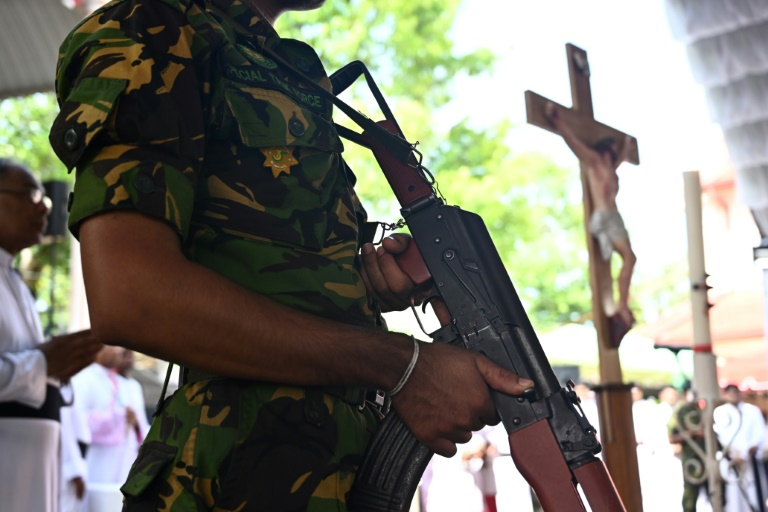
Security remained tight at the churches targeted in Sri Lanka. /AFP Photo
Security remained tight at the churches targeted in Sri Lanka. /AFP Photo
Among the suspects unaccounted for is a domestic Islamist group, National Thawheed Jama'ut (NTJ) leader Zahran Hashim, who appeared to be among eight people seen in the video.
Officials said it was still unclear whether Hashim was among the suicide attackers or had escaped. However, Reuters reported that authorities have focused their investigations on international links to the two domestic Islamist groups NTJ and Jammiyathul Millathu Ibrahim(JMI).
Investigators are still piecing information together about the attacks and those involved, with officials revealing one attacker had studied in Britain and did post-graduate studies in Australia before returning to Sri Lanka.
Wijewardene said most of the assailants were "well-educated and come from middle, upper-middle-class families, so they are financially quite independent."
Fears spread among Muslims
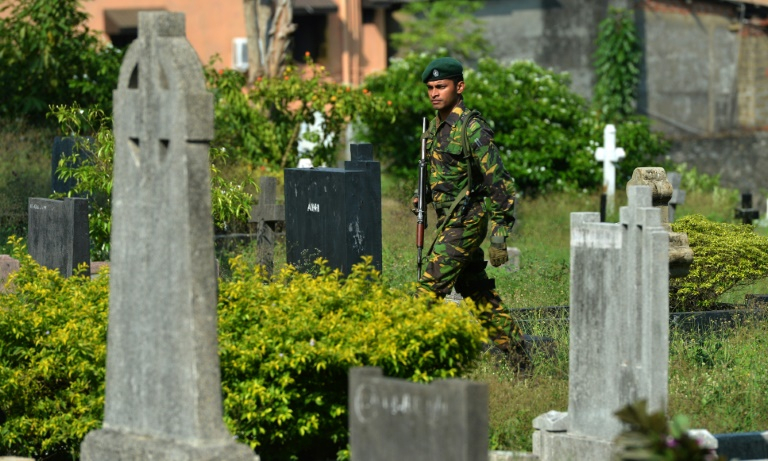
Sri Lanka police are patrolling cemeteries in the wake of the Easter Sunday bombings. /AFP Photo
Sri Lanka police are patrolling cemeteries in the wake of the Easter Sunday bombings. /AFP Photo
Fears are growing of a surge of communal tension.
Muslims have fled the Negombo region on Sri Lanka's west coast since scores of worshipers were killed in the bombing of the St. Sebastian church there on Sunday.
Hundreds of Pakistani Muslims have left the port city, crammed into buses, after threats of revenge.
"The local Sri Lankan people have attacked our houses," one of them, Adnan Ali, told Reuters on Wednesday, as he prepared to board a bus.
(Cover image: People light candles at the funeral of Dhami Brindya, 13, victim of a string of suicide bomb attacks, Negombo, Sri Lanka, April 25, 2019. /Reuters Photo)
Source(s): AFP
,Reuters

